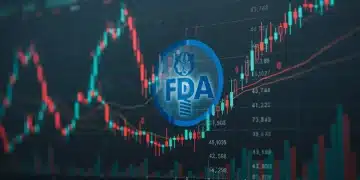Breaking news on international economic policies that matter

International economic policies include tariffs and trade agreements that directly influence global trade dynamics, affecting everything from consumer prices to market access for businesses.
Breaking news on international economic policies shapes the global landscape. Have you ever wondered how these changes can impact your daily life? Let’s explore the latest developments and their potential effects.
Current trends in international economic policies
Understanding the current trends in international economic policies is crucial for staying informed about the global economy. As countries adapt to changing circumstances, several key aspects influence these policies significantly.
Globalization and Trade Agreements
One major trend is the increasing focus on globalization and trade agreements. Countries are working together to create better trade deals that benefit multiple economies, fostering connections and economic growth.
- Enhanced cooperation among nations
- Reduction of trade barriers
- Increased economic interdependence
- Focus on sustainability in trade
These agreements often lead to improved relations between nations and can significantly boost the economies involved. As we look deeper into these practices, it’s clear that collaboration is becoming more important than ever.
Impact of Technology on Policies
Another trend is the role of technology in shaping economic policies. Advances in technology are not only affecting commerce but also how policies are formed and implemented. Governments are leveraging tech tools to create policies that are more effective and streamlined.
Innovations like digital currencies and online trade platforms are at the forefront of this shift, making transactions faster and more secure. Adaptation to these technologies ensures that economies remain competitive on a global scale, influencing decision-making in significant ways.
Shifts in Economic Power
As we observe the landscape, we also see a shift in economic power. Emerging markets are gaining strength, challenging established economies. This shift is prompting changes in international policies to accommodate the needs of a more diverse set of nations.
- New players in global trade
- Changing influence of traditional powers
- Increased focus on emerging economies
This evolution requires that developed countries revisit their policies to foster a more balanced and inclusive economic framework.
Overall, keeping an eye on these current trends in international economic policies is essential. It highlights the interconnected nature of our world and the ongoing changes that define our economic future. With each trend, we gain insight into the challenges and opportunities that lie ahead for nations around the globe.
Impact of economic policies on global trade

The impact of economic policies on global trade is profound and shapes how countries interact with each other. Trade policies determine the rules of engagement between nations, affecting everything from tariffs to trade agreements.
Effects of Tariffs
Tariffs are a primary tool in economic policy. They are taxes on imported goods that can raise prices for consumers and affect market competition. Countries use tariffs to protect local industries, but they can also lead to trade wars.
- Increased prices for consumers
- Protection for domestic industries
- Potential retaliation from other countries
- Impact on global supply chains
As countries impose tariffs, they often face retaliation, which can escalate tensions and lead to a cycle of increased tariffs.
Trade Agreements
On the other hand, trade agreements are essential for promoting smooth trade between nations. They reduce barriers, allowing for more efficient exchange of goods and services. These agreements can enhance economic relationships and encourage investment.
When countries reach trade agreements, they often see benefits such as:
- Lower tariffs and trade barriers
- Improved access to markets
- Increased investment opportunities
- Enhanced cooperation on economic issues
By signing these agreements, nations work to build stronger economic ties and foster mutual growth.
Long-term Economic Growth
The decisions made regarding economic policies have lasting effects on global trade and economic stability. When countries adopt favorable policies, it can lead to sustainable economic growth. Businesses thrive in a stable trading environment, increasing productivity and innovation.
Additionally, as globalization continues to evolve, countries must adapt their policies to maintain competitive advantages in the global market. This ensures that they remain relevant and can adequately respond to challenges.
Studying the impact of economic policies on global trade allows us to understand the complexities of international relationships and the economic landscape. Staying informed about these dynamics is crucial for policymakers, businesses, and consumers alike.
Analyzing the effects of tariffs and trade agreements
Analyzing the effects of tariffs and trade agreements is essential to understand the global economy. Tariffs are taxes imposed on imported goods and can significantly alter market dynamics.
Understanding Tariffs
Tariffs can lead to higher prices for consumers, affecting their purchasing power. When a country imposes tariffs, foreign products become more expensive, which can decrease their sales. This often protects domestic industries but can also lead to trade tensions.
- Increased consumer prices
- Protection of local jobs
- Probability of retaliatory tariffs
- Impact on international relationships
Overall, tariffs have a complex role in shaping trade policies and practices.
Trade Agreements and Their Benefits
On the flip side, trade agreements work to facilitate smoother trade flows between countries. By reducing or eliminating tariffs, these agreements encourage trade and promote economic growth.
The benefits of trade agreements include:
- Access to new markets for exporters
- Reduction of costs for consumers
- Increased competition leading to better products
- Strengthening political ties between nations
These collaborations can create win-win scenarios where economies thrive together.
Examining both tariffs and trade agreements reveals their interconnected nature. Tariffs can affect the negotiations and outcomes of trade agreements, while agreements can help mitigate the adverse effects of tariffs. In essence, both elements shape the foreign trade landscape.
Understanding their impact helps businesses and policymakers make better decisions. The balance between protecting local industries and fostering global trade is a delicate one, and this requires careful analysis of both tariffs and trade agreements.
Future predictions for international economic dynamics

Future predictions for international economic dynamics offer valuable insights into how the global economy may evolve. Understanding these trends is essential for businesses, governments, and individuals seeking to navigate the complex world of international trade.
Emerging Markets on the Rise
One significant trend is the rising influence of emerging markets. Countries like India, Brazil, and Vietnam are expected to see substantial growth. This shift can lead to changes in trade patterns as these nations become more integrated into the global economy.
- Increased investment opportunities
- Greater demand for exports from developed countries
- Potential shifts in manufacturing bases
- Expansion of trade agreements
As emerging markets grow, they could reshape global supply chains and create new partnerships.
Technological Advancements
Technological advancements will also play a crucial role in shaping future economic dynamics. Innovations in communication, transportation, and digital currencies can streamline trade and reduce costs.
The transformative effects of technology include:
- Faster transaction times across borders
- Enhanced data analytics for better decision-making
- Increased use of e-commerce platforms
- Development of smart contracts for trade
These innovations can lead to a more efficient global market.
Additionally, sustainability will likely dictate future economic strategies. As countries become more environmentally conscious, policies focusing on sustainability will impact trade dynamics. Nations that adapt early may gain a competitive edge in international markets.
Examining these future predictions for international economic dynamics helps us understand the complexities ahead. By staying informed, we can better prepare for the evolving landscape of global trade and investment.
FAQ – Frequently Asked Questions about International Economic Policies
What are international economic policies?
International economic policies are regulations and agreements that govern trade, investment, and financial relations between countries.
How do tariffs affect global trade?
Tariffs make imported goods more expensive, which can protect local industries but may also lead to higher prices for consumers.
What is the role of trade agreements?
Trade agreements reduce barriers to trade and create rules that facilitate smoother commerce between nations.
Why is it important to understand emerging markets?
Emerging markets are becoming major players in the global economy, and understanding them helps anticipate trends and opportunities in trade.





